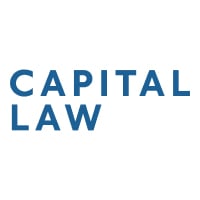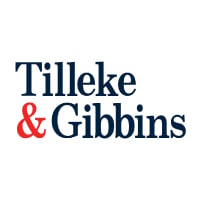

Head of litigation | Krungsri Group






Rattapon Punthongpund
Head of litigation | Krungsri Group
Team size: 12
What are the most significant cases, projects and/or transactions that you and/or your legal team have recently been involved in?
Over the past year, I have led a legal transformation initiative within Krungsri (KSC)’s litigation department focused on improving the efficiency and recovery performance of debt enforcement. One of the most significant achievements was the development and implementation of a new strategic litigation framework that unlocked over THB100 million in recoveries through court-enforced executions, well above previous benchmarks.
To achieve this, I worked closely with cross-functional teams to identify and eliminate long-standing bottlenecks in the case management process, including workflow delays, jurisdictional inefficiencies and procedural redundancies. We streamlined case pipelines, prioritised high-yield enforcement targets and introduced data-driven segmentation to allocate resources more effectively.
The project not only boosted financial recovery but also enhanced internal morale and stakeholder confidence by proving that the legal function could be both strategic and results oriented. It was a powerful demonstration of how legal leadership can contribute directly to the bottom line while maintaining fairness, compliance and accountability throughout the process.
How do you approach managing legal aspects during periods of instability or crisis to ensure the organisation’s resilience?
My approach is rooted in three principles: clarity, continuity, and composure. During crises, whether involving regulatory shifts, market volatility or external threats such as cyber incidents, legal must serve as both a shield and a compass. We developed a crisis playbook combining scenario-based legal response frameworks with clear communication chains. I believe in embedding legal as a real-time partner in business continuity planning, not just an after-the-fact advisor.
For example, during a recent wave of financial fraud affecting consumer digital platforms, our legal team collaborated closely with IT and risk units to amend customer protection protocols and accelerate claim adjudication timelines. The trust built through these moments of uncertainty reinforced legal’s role as a stabilising force in the organisation.
At KSC, we took a policy-driven approach to digital transformation by issuing and enforcing unified data handling and workflow standards across a nationwide network of over 20 external law firms. Recognising the risk exposure that came with fragmented legal processes and inconsistent PDPA compliance, we developed a centralised protocol covering document submission, case status reporting and secure communication, all embedded with data protection safeguards.
Rather than relying on ad hoc coordination, we established digital reporting templates and timelines, integrated case tracking with internal systems and mandated PDPA-aligned practices for handling sensitive customer and financial information. This approach not only improved transparency and control but also reinforced accountability among our external legal partners.
By combining digital tools with a clear legal governance structure, we positioned legal not just as a function but as a platform that is scalable, compliant and aligned with the organisation’s transformation roadmap.
What do you think are the most important attributes for a modern in-house counsel to possess?
The modern in-house counsel must balance technical depth with strategic empathy. It is no longer enough to simply know the law; you must understand the business, foresee regulatory shifts and communicate legal risks in commercial terms. Adaptability, the courage to challenge and ethical resilience are essential traits. The ability to lead change and build influence without formal authority is what differentiates a trusted advisor from a transactional legal officer.
What is a cause, business or otherwise, that you are passionate about? Why is this?
Consumer protection is close to my heart. Outside of my corporate role, I contribute pro bono to the Thailand Consumers Council, particularly in areas involving financial fraud, data misuse and systemic redress. I believe that as lawyers we have both the tools and the duty to ensure access to justice, especially for those who lack the means to defend themselves. Fairness is not automatic; it is something we must actively fight for.